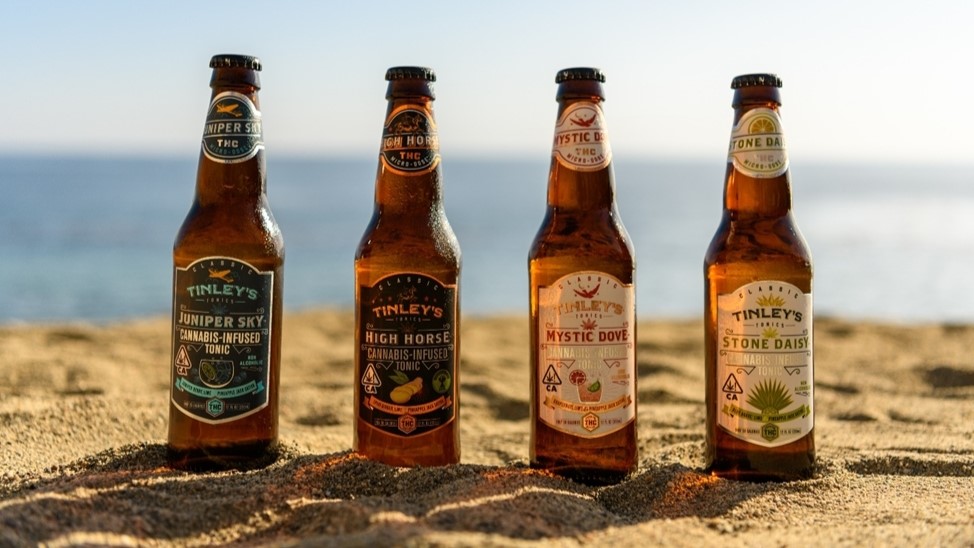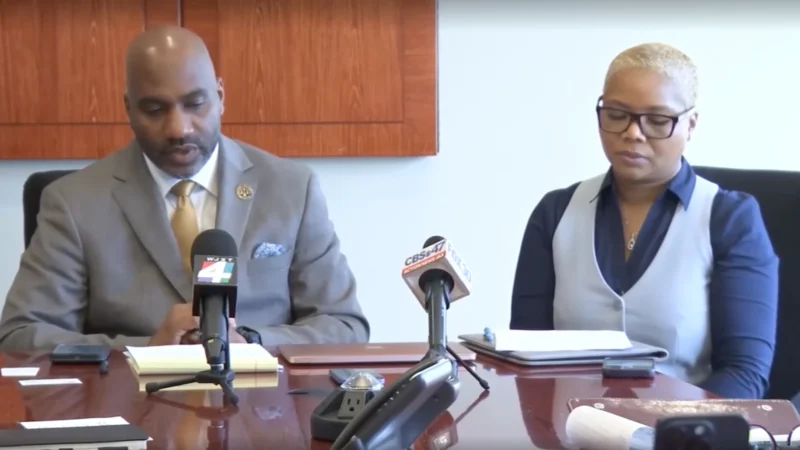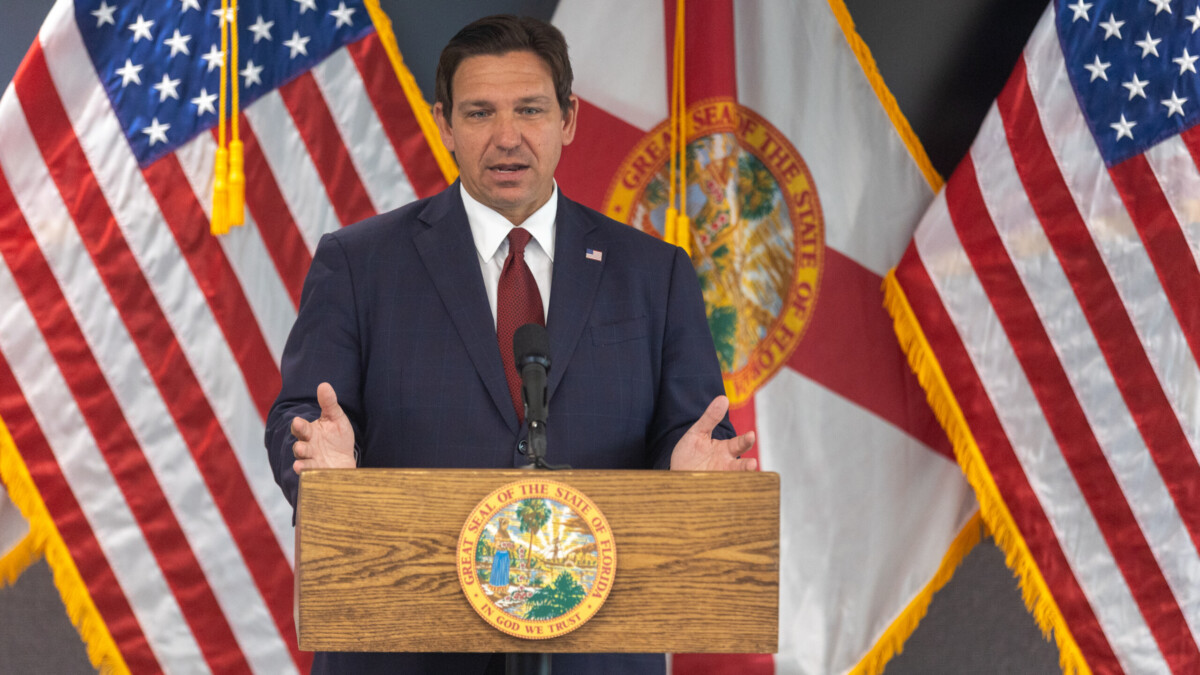A year after Gov. Ron DeSantis vetoed a bill on the issue, lawmakers again are considering proposals aimed at imposing strict regulations on the sale and production of euphoria-inducing hemp products.
This year’s legislation, however, also targets a new kind of buzz — beverages that include THC, or tetrahydrocannabinol, the primary psychoactive component in cannabis that’s responsible for getting users high.
THC-infused beverages have mushroomed in popularity and can be sold in convenience stores, grocery stores and liquor stores. The drinks also are sold by retailers that specialize in hemp-derived products or can be purchased online.
As the 2025 legislative session approaches the midpoint Wednesday, House and Senate proposals seeking to impose strict regulations on consumable hemp-based products also address THC-infused drinks. Such beverages were not included in a wide-ranging 2024 measure that hemp retailers and growers strenuously opposed and which the governor vetoed.
This year’s Senate proposal (SB 438) would require THC-infused beverages to be distributed by alcohol wholesalers and sold by retailers and establishments that have liquor licenses. The plan, which is ready for a full Senate vote, also would cap the amount of THC in the drinks, which typically are seltzer-like, flavored beverages that do not contain alcohol.
“They are intoxicating beverages … and in the bill, they are treated as intoxicating beverages, including how the products get from the manufacturers to the store location through the distribution system that we currently have here in the state of Florida,” bill sponsor Colleen Burton, R-Lakeland, told the Senate Fiscal Policy Committee before the panel unanimously approved the proposal last week.
Lawmakers have struggled to regulate euphoria-inducing cannabis products since a 2018 federal farm bill legalized hemp. Cannabis plants that have 0.3% or less of THC are considered hemp, while cannabis plants with a THC level of more than 0.3% are deemed marijuana. Sales of hemp-derived products have mushroomed since the federal law was passed.
Supporters of hemp-based products also maintain that they offer a cheaper alternative for people who don’t want to participate in the state’s medical-marijuana program, which voters approved in 2016. Critics contend that the hemp products lack the rigorous scrutiny and oversight imposed on medical-marijuana companies.
The THC-infused drinks — with brands such as “Buddi,” “Hi Seltzer,” “Plift,” and “Lolli” — are marketed as a healthier alternative to booze and are relative latecomers to the fast-growing hemp market.
“Skip the hangover and vibe rite,” Delta Cannabis Water, which is operated by Delta Beverages LLC, says on its website.
Delta Beverages products include fruit-flavored carbonated beverages with 5, 10 or 20 mg of THC. The Senate proposal would cap THC at 5 mg.
Jack Sherrie, the North Carolina-based company’s founder and CEO, told the Senate committee his business is “one of the first and fastest-growing THC beverages companies” in the nation and that Florida is their top-selling state.
Sherrie said his products undergo testing and are distributed by Anheuser-Busch wholesalers. He welcomed the proposed regulations.
“Responsible operators are left to navigate this wild west environment where bad actors can take shortcuts and put consumers at risk. Senator Burton’s bill brings much needed clarity and accountability to the industry, and we strongly support this intent,” Sherrie said.
But others in the industry disagree.
Michael Smith, the co-owner of Herban Flow, a “specialty” retailer in downtown St. Petersburg, said his business is restricted to people ages 21 and older. Smith said he supports regulations such as child-proof packaging, age verification for sales and product testing — elements that also are included in Burton’s proposal.
“But this bill, as currently written, will unintentionally damage a growing regulated industry, and when it comes to the safety, it does little to improve, particularly when it comes to beverages,” Smith said.
The 5 mg THC limit “is far below what consumers are already used to and well below the functional standards in other states,” Smith argued.
“If what’s being proposed goes through, it’ll make Florida one of the most restrictive and least competitive markets in the country,” he added.
The House Housing, Agriculture and Tourism Subcommittee is slated to take up two hemp-related bills on Tuesday. One of the proposals (PCB HAT 25-01) would require THC-infused beverages to be sold by establishments with liquor licenses.
The other bill (PCB HAT 25-02) would set a 60% excise tax on hemp-derived products other than beverages. The House plan would impose a $2.25 per gallon tax on THC beverages sold in bulk and a 29-cent per pint tax on THC beverages sold in containers less than a gallon.
Both the House and Senate plans would create new regulations and set potency limits for consumable hemp products being sold throughout the state.
Florida already restricts the sales of hemp-derived products to people over age 21. The legislation would go further to limit products’ appeal to children.
As an example, part of the House bill would require consumable hemp products to be sold in packages that are a single color and not transparent. Packages also would have to be labeled with a “universal” THC in a different color.
The House and Senate bills also would require that products be tested by a state-certified lab and would ban the sales of synthetic hemp products.
The bill vetoed by DeSantis last year would have banned the sale of products containing what is known as delta-8 tetrahydrocannabinol and limited the amount of delta-9 THC. Delta-8 and delta-9 are cannabinoids in hemp that can get people high.
In a veto message, DeSantis said the legislation’s “goals are commendable” but that it “would, in fact, impose debilitating regulatory burdens on small businesses and almost certainly fail to achieve its purposes.” DeSantis’ veto letter urged lawmakers to reconsider the issue during the 2025 legislative session.
The majority of hemp industry operators who have addressed the Senate bill have opposed it.
Adam Houston, a Suwanee County farmer who owns a hemp company, said the Senate proposal would impose additional hurdles on the industry.
“Anytime that there’s more regulations and there’s products banned, especially in the hemp industry, I feel like it just drives those customers to the black market … and it hurts my industry tremendously,” Houston told the Senate committee last week.
Burton appeared hopeful that DeSantis would be more amenable to the revamped bill.
“The governor in his veto letter encouraged us to keep working on it, so that’s why we’re here today,” she said Thursday.






